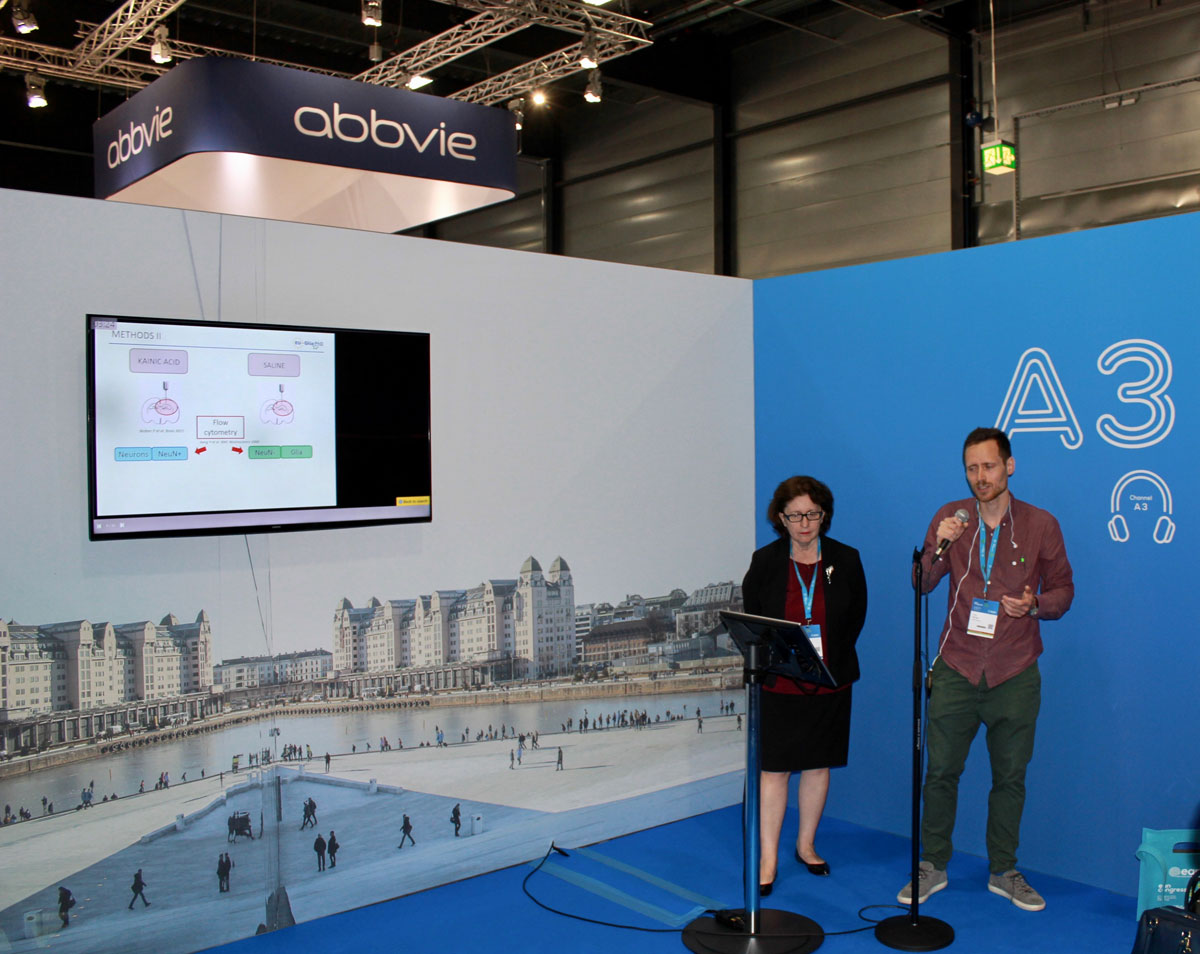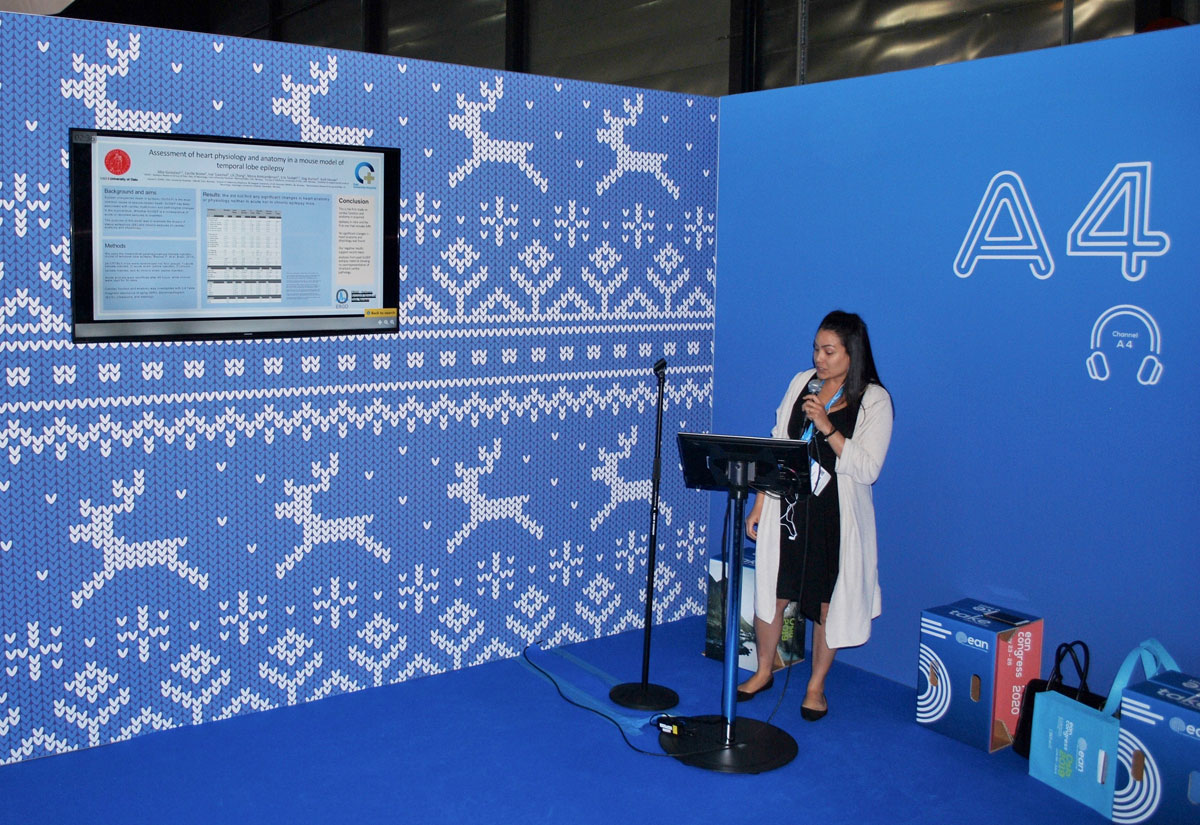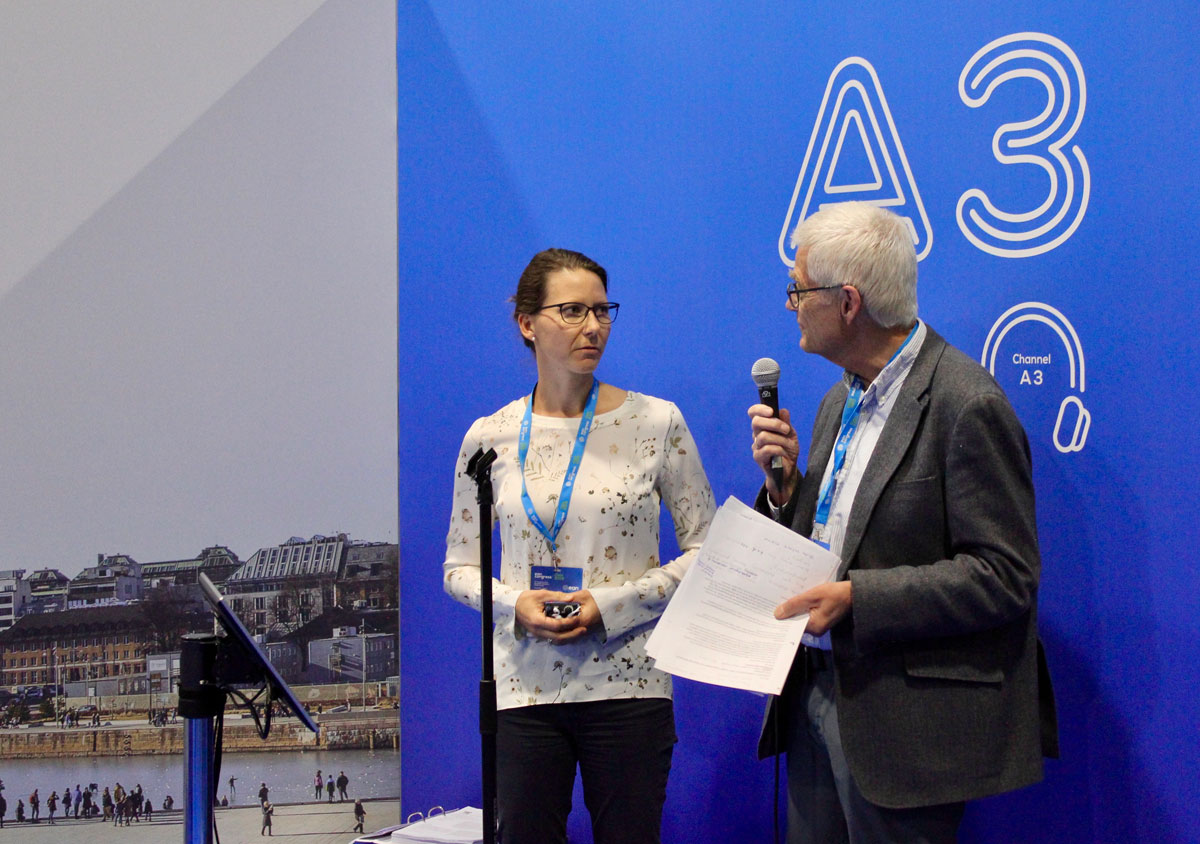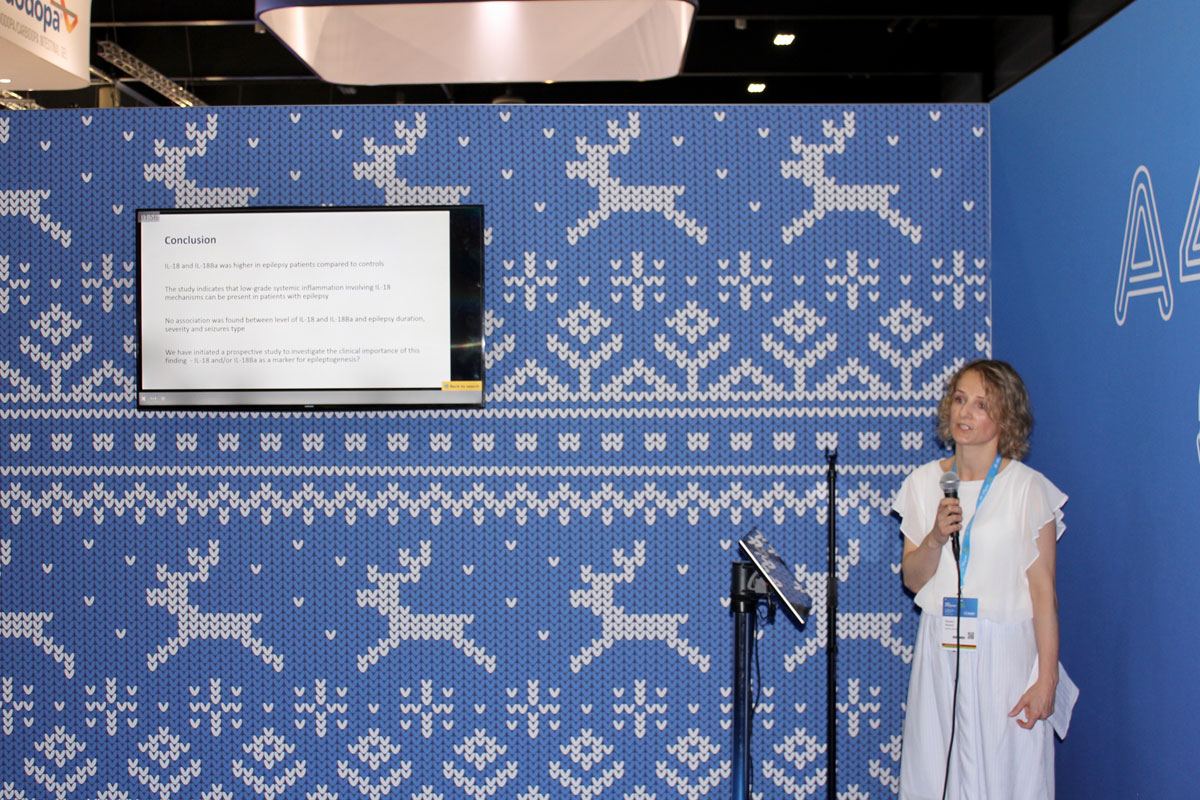ERGO at EAN 2019 - Presentations of PhD projects
ERGO was represented with a total of 6 scientific presentations from PhD candidates at European Academy of Neurology (EAN) Congress in Oslo. Here are short summaries of the presentations.
Toni Berger: Cell specific DNA methylation and gene expression changes in early epileptogenesis
DNA methylation is a potential upstream effector of epileptogenesis and as such of interest for the development of new therapeutic strategies against epilepsy. Using a mouse model for TLE, our group was the first to investigate epilepsy related DNA methylation and gene expression in neurons and glia separately. Our data revealed fulminant and mostly cell specific changes in DNA methylation and gene expression and at several epilepsy-related genes, significant differential methylation and differential gene expression coincided, possibly representing potential antiepileptogenic intervention sites.
Alba Gonzalez: Assessment of heart physiology and anatomy in a mouse model of temporal lobe epilepsy
Sudden unexpected death in epilepsy (SUDEP) is the most common cause of seizure related death. SUDEP has been associated with cardiac fibrosis and conduction abnormalities. However, whether these features are a direct consequence of acute or recurrent seizures is unsettled. In this study we used the intracortical parahippocampal Kainate injection model of temporal lobe epilepsy (TLE) to evaluate the impact of status epilepticus (SE) and chronic seizures on cardiac anatomy and physiology. After an initial SE, the animals developed typical features of TLE. 24 mice were studied over 30 days with cardiac MRI, electrocardiogram, cardiac ultrasound and histology. No overrepresentation of structural cardiac pathology was found in epilepsy mice compared to controls. Further research is needed to investigate the relation between seizures and cardiac function and anatomy.
Agnes Balint Bjørke: Cognition in adult patients with newly diagnosed non-lesional temporal lobe epilepsy
Cognitive impairment is a major complicating feature of temporal lobe epilepsy (TLE), however, it is still unclear whether this reflects structural abnormalities of an epileptogenic brain, the effects of chronic seizure activity, or adverse effects of long-term medication use. In this baseline longitudinal study, we evaluated cognitive functioning in patients with TLE compared to control subjects. The patients performed significantly worse on tasks such as visual learning and memory, executive functions, and had reduced attention span, already at the time point of diagnosis, and even in the absence of structural brain abnormalities. We therefore hypothesize that cognitive dysfunction in TLE may be linked to the underlying pathology of the condition rather than to repetitive seizures or long-term use of antiepileptic drugs. The finding that also executive functions are affected at an early stage indicates that the disorder is not limited to the temporal lobes but also comprises larger brain networks.
Line Bédos Ulvin: Predictive performances of STESS and EMSE in a Norwegian status epilepticus cohort
“Status Epilepticus Severity Score” (STESS) and “Epidemiology-based Mortality Score in Status Epilepticus” (EMSE) are two clinical scoring systems aiming to predict mortality in status epilepticus (SE). We evaluated their predictive performances in a retrospective cohort of 151 SE-patients from Oslo University Hospital. We found that EMSE-EACE (based on etiology, age, comorbidities and EEG pattern) performed the best with an area under the receiver operating curve of 0.86, p<0.001. The best cut-off value was 79 producing a sensitivity of 77.8%, a specificity of 87.8%, a positive predictive value of 36.8% and negative predictive value of 97.7%. The STESS did not perform well in our cohort. Our findings support that EMSE-EACE can identify patients with an increased risk of death in SE, and that etiology, age, comorbidities and EEG-pattern are important determinants of outcome.
Monika Mochol: Interleukin 18 and its binding protein IL-18Ba – possible new markers of low-grade systemic inflammation in epilepsy patients
The causes of epilepsy are many and still not fully understood. Inflammation seems to have an important role in the epileptogenesis. Interleukin-1b(IL-1b) has been suggested to be involved in epileptogenesis, there are no data on IL-18. IL-1band Interleukin-18 (IL-18) are both produces by the some inflammasome. The purpose of the study was to assess if IL-18 and its binding protein (IL-18Ba) could be consider as a biomarker of active inflammation in patients with epilepsy.In our cross-sectional study we analysed circulating levels of IL-18 and IL-18Ba among 121 epilepsy patients, of all types, and 80 healthy controls.The patients had significantly higher level of IL-18 and IL-18Ba in comparison to the control group. Although after correction for potential confounders both markers were significantly elevated in the patient group with BMI under 30 kg/m². Multivariate regression showed no association between level of IL-18 and IL-18Ba related to epilepsy duration, severity or seizure type.
Our findings indicate that low-grade systemic inflammation involving IL-18 mediated mechanisms is present inepilepsy patients with BMI under 30 kg/m².
Ellen Molteberg: Does treatment with modified Atkins diet for drug resistant epilepsy affect thyroid function?
Ellen Molteberg’s eposter investigated the effect of modified ketogenic diet on the thyroid of adult patients with therapy refractory epilepsy. A total of 53 patients received the diet over a period of 3 months and thyroid hormones were measured at baseline and after 3 months. Results were a significant reduction of T3, a significant elevation of fT4 and a slight elevation of TSH. There was not seen any correlation between a change of thyroid hormones and seizure frequency or grade of ketose. Gender or the usage of enzyme vs non inducing anti-epileptic drugs neither had any significant effect.
Image gallery:

|

|

|

|

|
